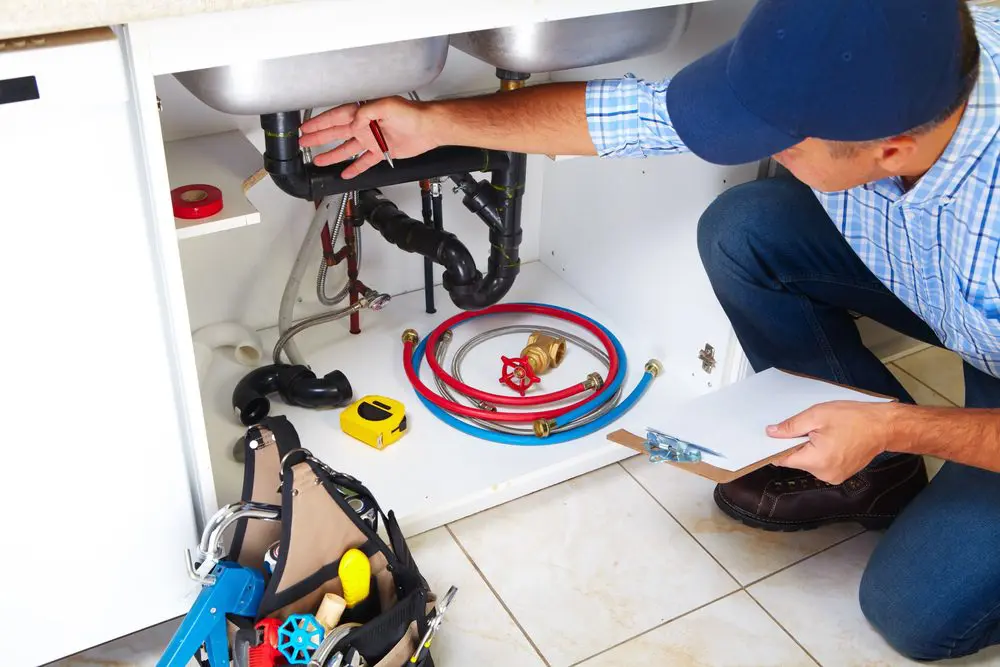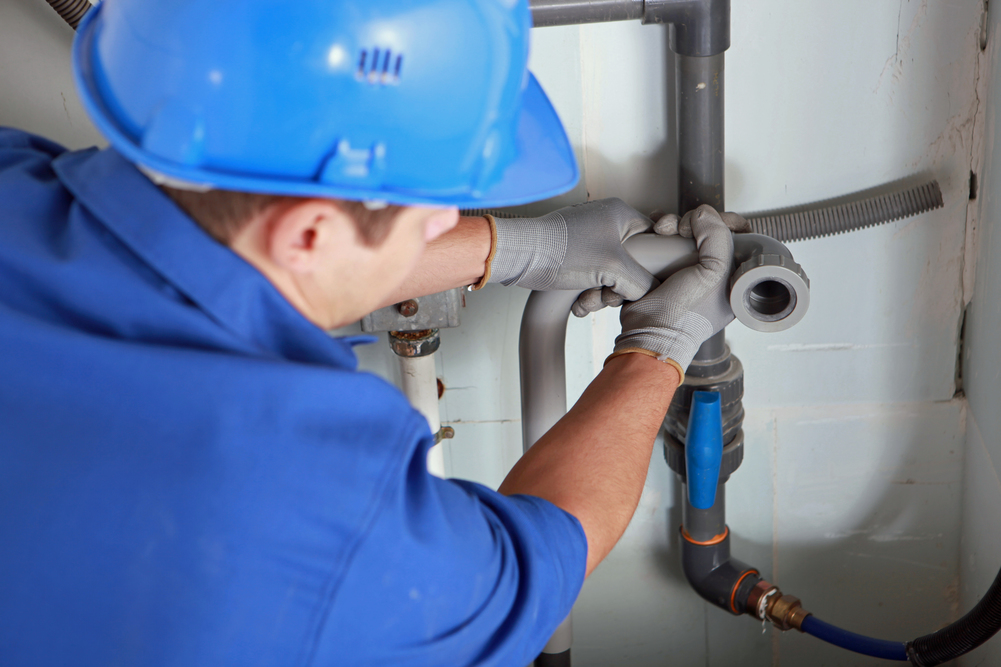Book Services
Just about every person has got his or her own perception about Ways to Make Your Pipes Last Longer.

The secret to long-term home appliances, unsurprisingly, appertains maintenance. There's no set policy that can guarantee your plumbing home appliances a lengthy wear, yet you can protect against unneeded damage and repair work by preventing poor plumbing habits.
You need to stop doing these 6 things else you'll maintain calling your plumber over for minor faults.
Purging every little thing
Yes, your commode drainpipe results in the drains, but that does not imply you should discard simply anything down the tubes. Several 'flushable' products are really excellent clog starters, for example floss. Asides maintaining apparent non-flushable materials like cables and plastics out of your toilet, you need to additionally prevent flushing cotton swab, menstrual products, wipes, daipers and prophylactics down the commode drainpipe.
Putting oil in the sink
We understand appropriately disposing of oil after a hearty meal is a pain. However just pouring it away can do long-lasting damage to your pipelines. "The fat and also oil can clog your drain severely enough to require you to call a plumber," discusses Dawson. "Plumbing functions best when it's well taken care of-- not abused with grease."
Using excessive drainpipe cleaner
Using a drainpipe cleaner more than once or twice a month is an indicator that something serious is taking place within your pipelines. Now, rather than encountering the primary issue, you go with a quick fix; a fizzy drain cleaner. Rightfully, a drainpipe cleaner will take care of the blockage, but at what price?
The chemicals in a drain cleaner can hasten the corrosion of your pipes. Include that to whatever underlying issue is causing the blockage as well as you might have to a major issue on your hands.
If you experience too many blockages, call your emergency plumber as opposed to utilizing a drain cleaner.
Not rinsing recipes prior to filling them right into the dish washer
it's called a dishwashing machine, but tossing in recipes, pots, as well as frying pans covered in large food fragments can in fact trigger some major damages to the home appliance, bring about long-lasting issues down the line. "Home owners might have to get their dishwashing machine repaired more frequently if they don't wash their dishes prior to packing, or at least eliminate larger food pieces," describes Audrey Monell, owner of Forrest Anderson Plumbing and also A/c in Glendale, Arizona. "Food that obtains stuck on meals triggers the dishwashing machine to work harder, which can wear down parts faster, resulting in problems."
DIYing everything
With plumbing, a stitch in time really does conserve 9. You can avoid a fullblown plumbing emergency by calling your plumber at the correct time.
You may have learnt a few plumbing hacks from your daddy, but you should certainly understand where to draw a line and also call a professional. For instance, you might be able to repair a blockage on your own, but you shouldn't attempt to alter a pipe. You could inequality pipes or overtighten a screw, triggering even more injury and also damages than you believed. Calling a plumber is a secure and also economical decision.
Not changing your dish washer hoses
One simple method to make certain that you utilize your dish washer for several years is to change the pipe a minimum of when in five years. This also obtains washing machine pipes.
Gradually, food bits, soap and grease can create obstructions within your pipelines. Changing them in a timely manner will stop any presure build up that can harm the interior workings of your dish washer or washing machine.
A reinforced steel entwined tube does a wonderful work of lengthening your device's use time.
No winter months precautions
Extreme weather are bad for your pipelines, especially if they're made of steel. You ought to insulate your subjected pipes, as well as your water container, even if you have a hot water heater. You ought to also shut off your yard pipe shutoff and any other external water networks. These networks are outlets for cold; you pipes can begin to ice up from outside if you do not.
How Hard Water Damages Your Plumbing and Appliances
Hard water is no stranger to most households across America. This silent invader affects 85% of homes in the United States every day, wreaking havoc on pipes, plumbing fixtures, and water-using appliances.
Should you become a victim of hard water, you must understand exactly what it is and how it affects your plumbing and appliances. This will help you determine the correct measures to put in place to fix or prevent any problems that may arise.
First off, what exactly is “hard” water?
In short, “hard water” is used to describe water that contains relatively high amounts of dissolved minerals, primarily calcium and magnesium, and a host of trace metals. When rainwater falls from the sky (usually in a pure form), it absorbs the hardness minerals from rocks and soil, which changes it from soft to hard water.
What about my plumbing and appliances?
Mineral deposits from hard water can cause buildup on tubs, shower, sinks, faucets. But that’s only a small scratch of the surface. Those minerals can gradually build up inside pipes, fixtures, water heaters, washing machines, and dishwashers. Once they accumulate in those areas, they can clog pipes and create major problems throughout your plumbing system, from reduced water flow to increased pressure on pipes and fixtures.
This limescale buildup might affect some appliances, causing them to operate less efficiently and wear down faster. And the result? Higher energy bills, more (costly) plumbing replacements and repairs, and damaged appliances.
Keep in mind that certain types of plumbing are more susceptible to clogging than others. Copper, PVC, and PEX pipes are more resistant to hard water buildup and corrosion, but they can still get clogged or completely blocked by scale deposits.
How do I know if my water is hard?
White limescale buildup on plumbing fixtures (or any of the other signs mentioned above) is usually a good sign that your water is hard. If you suspect that you have hard water, you can simply shake up a small amount of dish soap and water in a closed container. If the mixture doesn’t create a lot of suds, you probably have hard water.
The most precise method, however, is to test your water with a DIY test kit (sold online or at local home centers or hardware stores) or send a water sample from your tap to a local lab to be tested. Be sure that you understand the nature of the test, the water condition being measured, and the significance of the test results.
Another way to obtain an estimate of water hardness is to check your annual water quality report to see if your water provider has reported any instance(s) of water hardness in your water supply.
https://www.springwellwater.com/how-hard-water-damages-your-plumbing-and-appliances/

Do you enjoy more info about Ways to Make Your Pipes Last Longer? Try to leave a comment below. We would be interested to see your feelings about this blog post. We are looking forward that you come back again in the near future. In case you enjoyed reading our blog post kindly do not forget to share it. I praise you for your time. Come back soon.
Schedule Now